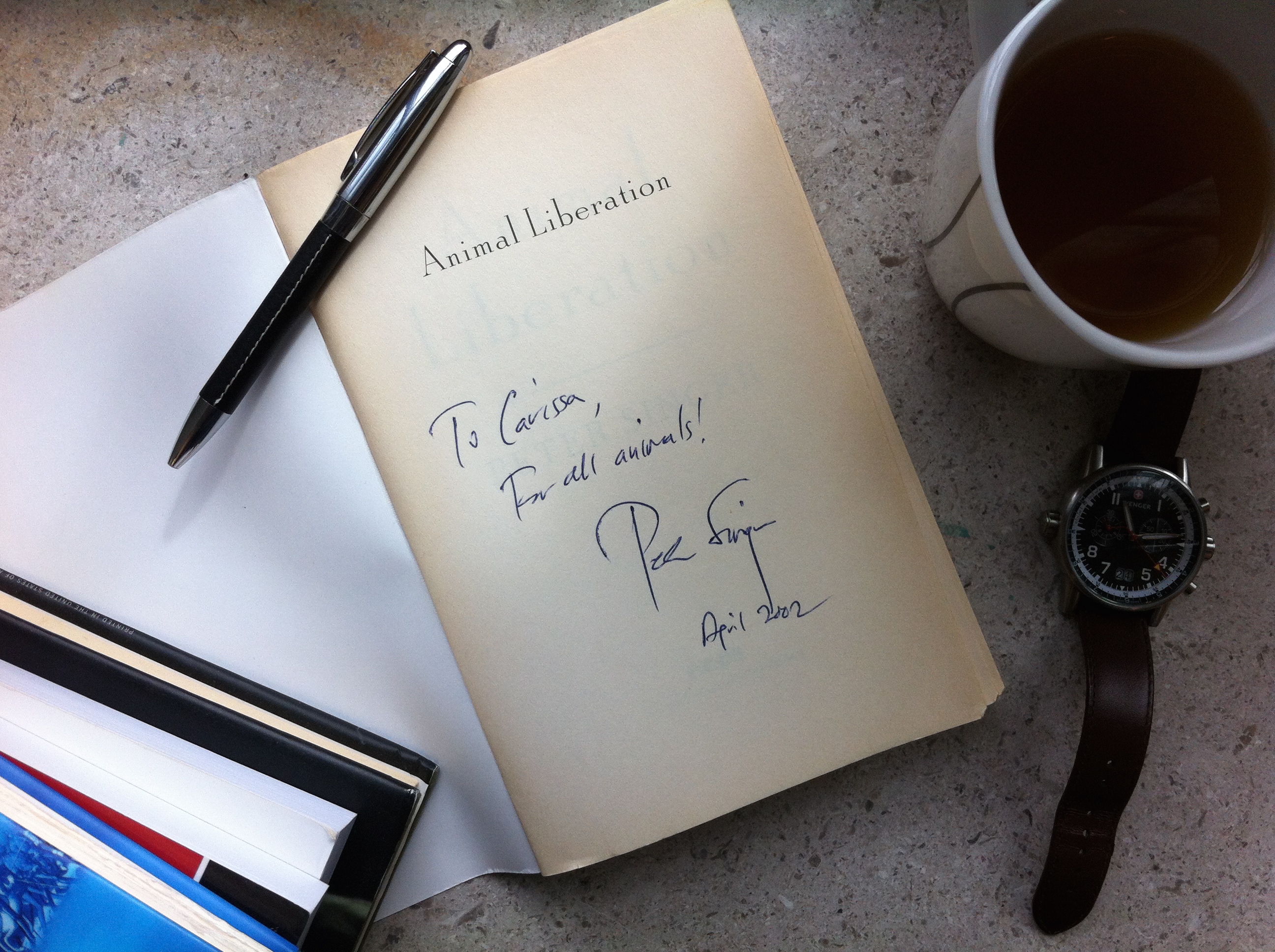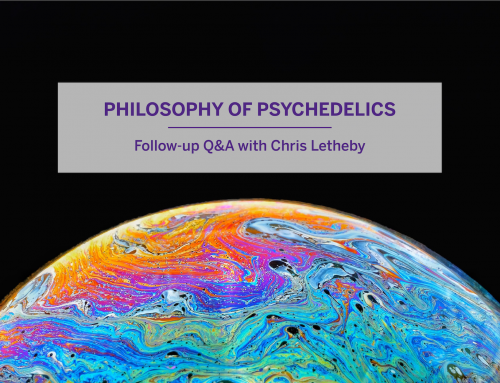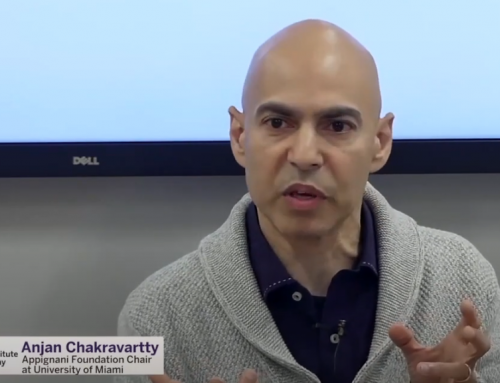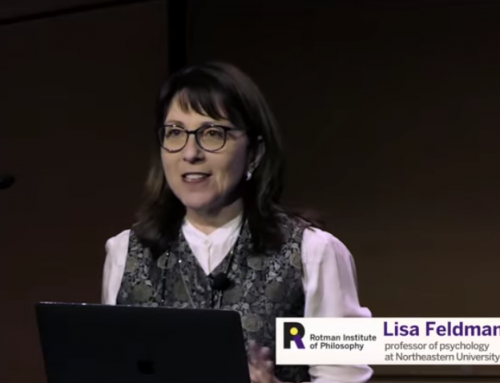Over a decade ago, my spouse, Carissa, and I hopped on the Long Island Railway and zipped off to Princeton, New Jersey, to see Peter Singer speak for the first time. The event was an animal rights summit that coincided with the release of Singer’s 2002 edition of Animal Liberation. I have two vivid memories of this event.
The first is the dessert that topped off the summit’s vegan lunch; a champagne flute filled with a mixture of fresh fruit and tiny slivers of Jalapeño pepper. I refused to eat it at first. I didn’t get it. But then I tasted it, and my goodness was it good!
The second is what transpired during the question and answer period. I was a fledgling (and seriously, seriously naïve!) undergraduate at the time, and wanted to point out what I thought to be the ‘obvious flaw’ in Singer’s argument: “Well, Professor Singer, how do you know that animals feel pain?” Thank goodness my nerves got the best of me. I couldn’t even bring myself to raise my hand. (For those interested in an answer see, among other passages, pgs. 9-13, Animal Liberation, 2002).
This, however, gave way to listening to other audience members’ questions. And they were fascinating: “Professor Singer, should I feed my pet dog a vegan diet?” “Is it wrong to accept a gift made of leather?” “What about the glue used to make shoes? To my knowledge, that comes from horse hoof. Is there a shoe manufacturer that doesn’t use animal based glue?”
The audience was not made up of academic philosophers. And they were not from the academe, in general. They were simply people, from all walks of life, who were struggling to reconcile how to be good. Singer had touched a nerve.
It’s not often that academic philosophers have this type impact. Indeed, Singer is unique in this respect, having influenced a generation in the animal rights and welfare movement, and now drawing significant attention to strategies for effective altruism. What is perhaps most admirable about Singer’s work is that it cuts across Ivory Tower boundaries; it is sophisticated, philosophically rigorous, and appropriate to discuss in graduate seminars, yet is accessible to any intellectually engaged person on the street. Moreover, Singer takes up problems of daily life: the food we eat, the healthcare choices we make, or inclinations to help the poor. He shows that we encounter philosophical problems around every corner and that critical reflection can act as a guide in times of uncertainty.
On September 17th and 18th, The Rotman Institute of Philosophy and Western University will be hosting Singer for a series of events. These events are aimed at engaging the public and Western’s academic community in philosophical questions at the heart of living a good life. On September 17th, Singer will give a public lecture on strategies for addressing global poverty. On September 18th, Singer will be speaking about the impact of his book, Animal Liberation, 40 years after its publication. These events promise to be both informative and thought provoking. All are invited to attend.
Registration details can be found here. Admission is free and open to the public.






